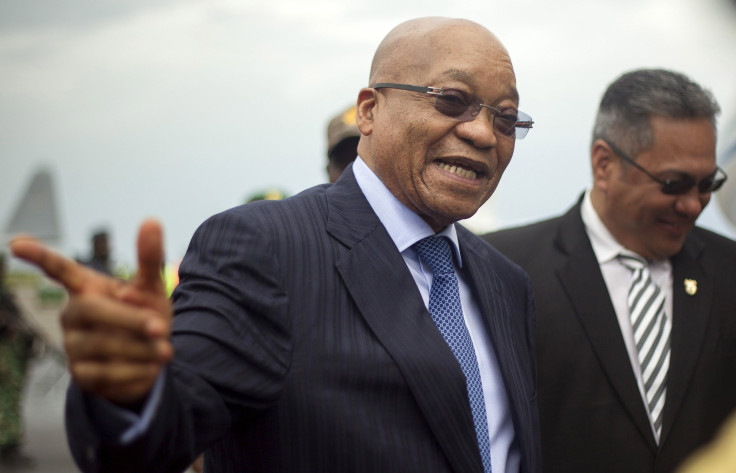South African President Jacob Zuma survives second no-confidence vote while facing possible reinstated corruption charges

South African President Jacob Zuma has survived a second no-confidence vote against him in less than 12 months, even as the opposition Democratic Alliance (DA) party builds pressure to remove him from office.
On Tuesday, a vote was put forward by the DA which said Zuma had to be “taken to task for his reckless handling of [South Africa’s] economy, and his sending South Africa into financial crisis”.
Their motion was defeated 225-99, thanks to large support from ruling African National Congress (ANC) MPs, who make up almost two-thirds of the assembly. There were 22 abstentions, reports the BBC.
Zuma had abruptly fired two Finance Ministers within the span of four days in December, prompting South Africa’s currency, the rand, to reach record lows and sending the markets into freefall. According to Al-Jazeera, the JSE All-Share Index lost $10.68 billion in a day.
"This is reckless by President Zuma, he is playing Russian roulette with the South African economy," DA leader Mmusi Maimane said.
Meanwhile, the DA is fighting to reinstate 783 corruption charges linked to a multibillion-dollar government arms deal against Zuma, which had been dropped by the National Prosecuting Authority (NPA) of South Africa just before Zuma was elected in 2009.
Although the DA alleges the charges were dropped because Zuma had interfered with the judiciary, then NPA national director Mokotedi Mpshe had made his ruling based on evidence -- “spy tapes” -- suggesting political interference in relation to the timing the charges were made.
The ‘spy tapes” had allegedly recorded conversations between then head of the Directorate Special Operations Leonard McCarthy, and former NDPP Bulelani Ngcuka about when to serve an indictment on Zuma, reported News24.
With DA lawyers now asking the court to set aside Mpshe’s 2009 decision, President Zuma on Monday said the decision by the National Director of Public Prosecutions (NDPP) was “rational” and the court proceedings were an “abuse of process by a political party in order to advance a political agenda”.
“Through his submissions to the High Court, President Zuma will maintain that the decision of the NDPP [National Director of Public Prosecutions in 2009 to drop the charges] was rationally derived at, as evidenced by the reasons advanced and accordingly, will withstand any scrutiny,” his office said in a statement.





















